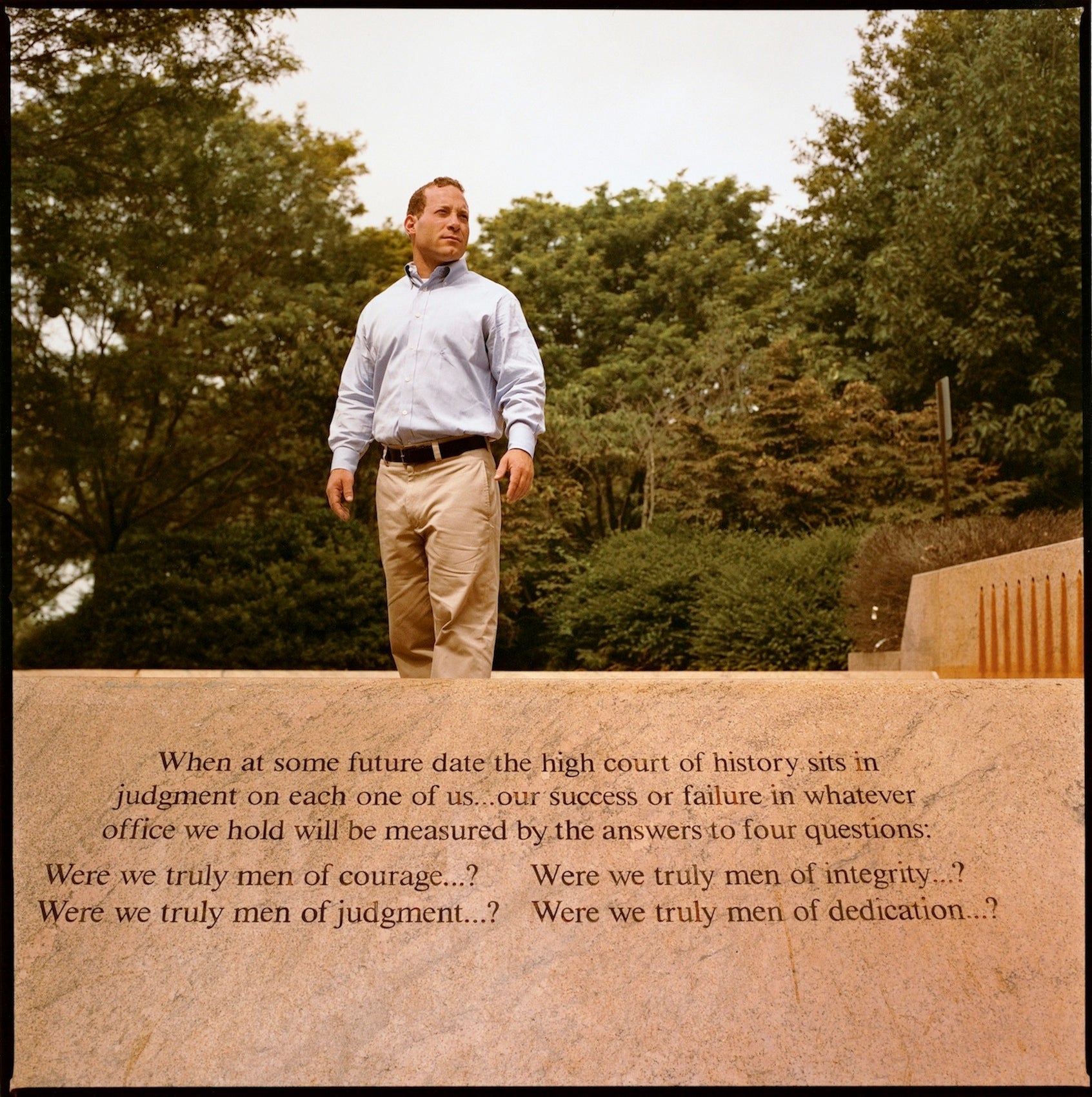President Clinton memorized many of them. He also gave one of them. Elementary school students in America know some of them. Others are unknown even to American historians. But, thanks to Josh Gottheimer ’04, the greatest American civil rights speeches are together for the first time, demonstrating the injustices and progress of a growing nation and ultimately, he says, hope for its future.
A former Clinton speechwriter, Gottheimer compiled the speeches for “Ripples of Hope” (Basic Civitas Books, 2003)–the only book of its kind, with entries dating from the birth of the U.S. government to the present day. It includes the familiar, such as Martin Luther King Jr. proclaiming, “I Have a Dream,” and Abraham Lincoln warning that “a house divided against itself cannot stand.” It also includes the obscure and surprising, such as a talk by an unidentified “freed Negro” in 1789 that references Shakespeare; Frederick Douglass speaking out for the rights of Chinese laborers; and rap singer Sister Souljah’s response to Clinton and others who criticized her message. The collection spans different eras as well as different civil rights movements: African-American, women’s, Hispanic-American, Asian-American and gay.
In all, the book contains 96 speeches. Of course, many more could have been added. As editor, Gottheimer read “a couple thousand” speeches, considering both their rhetorical and historical value. In addition to famous selections and speakers, he wanted to include different voices, of the “foot soldiers,” he said, “who are actually on the ground, day in, day out, doing the work and giving wonderful speeches that no one’s ever heard from.”
It was not the first time he’d turned to many of the speeches. After working for Clinton’s reelection in 1996, Gottheimer joined the White House speechwriting office in 1998, where he learned his craft in part by studying celebrated speakers. Before delivering a civil rights speech to the president, the office plumbed the words of Frederick Douglass, Susan B. Anthony or César Chávez more than any briefing book or policy paper, Gottheimer writes in his introduction. Yet such inspiration was not easy to come by; he never found the single volume of speeches he longed for, leading him to create it himself after he left the White House in January 2001.
Working for Clinton, which included helping draft the 2000 State of the Union address, “was a tremendous honor, an opportunity of a lifetime,” said Gottheimer. “He was so smart–you were always reaching higher. He demanded the best from you, and you always wanted to work hard for him.”
Gottheimer often spoke about civil rights with the former president, who contributes a foreword to the book in addition to a 1993 speech–delivered from the church pulpit where King gave his last sermon–in which Clinton condemned violence in the African-American community. For a white Southerner raised during segregation, it was a bold statement, says Gottheimer. As different as the speeches in the collection are from one another, they share that boldness, whether calling for the end of slavery, or the right of women to vote, or the release of Japanese-Americans from internment camps, or better conditions for Latino farm workers, or same-sex marriage.
They share something else too, something Robert Kennedy spoke about in a speech that gave the book its name: “Each time a man stands up for an ideal, or acts to improve the lot of others, or strikes out against injustice, he sends forth a tiny ripple of hope,” he said.
The book may help inspire people to heed Kennedy’s words, says Gottheimer. He plans to, bolstered by the foundation of law he learned at HLS. History shows, he said, “We had to win the victories in the law before you can eventually get to the soul of America.” Yet despite the progress shown in the annals of the civil rights struggles, he says much work still needs to be done, that inequality is still rampant in America. And you don’t have to be a presidential speechwriter or a Harvard Law graduate to change that.
“The idea of the ripple of hope is that each person can stand up and make a difference,” Gottheimer said, “and that they may not be Dr. King, but together, all these voices, all these little bits of action, will cause a ripple of hope and knock down walls of oppression.”
